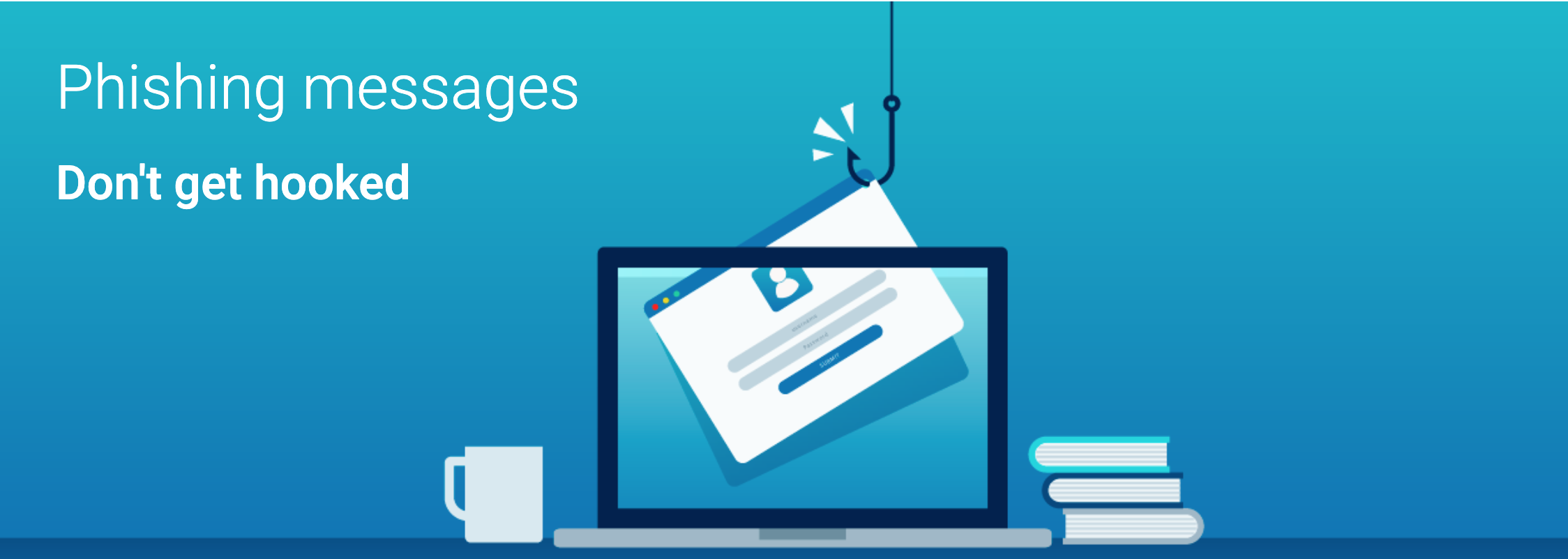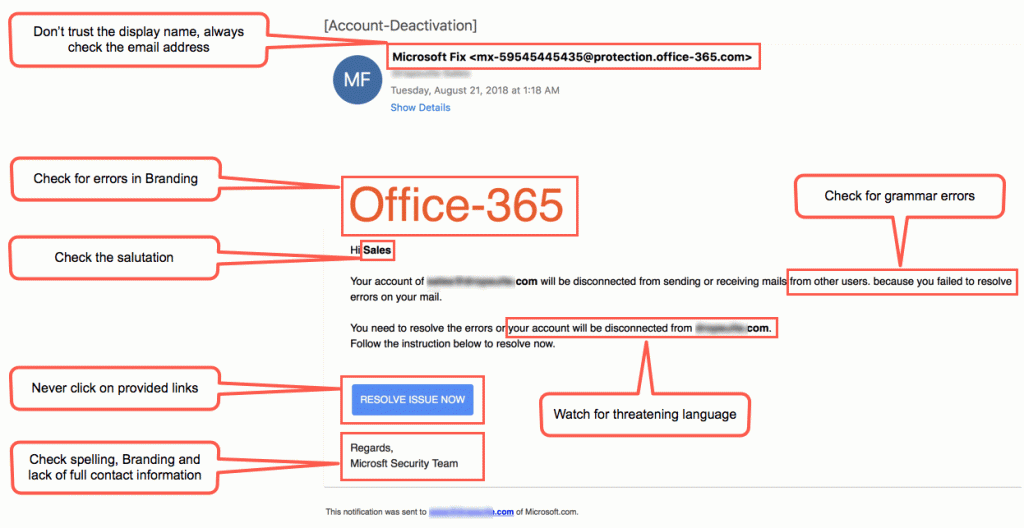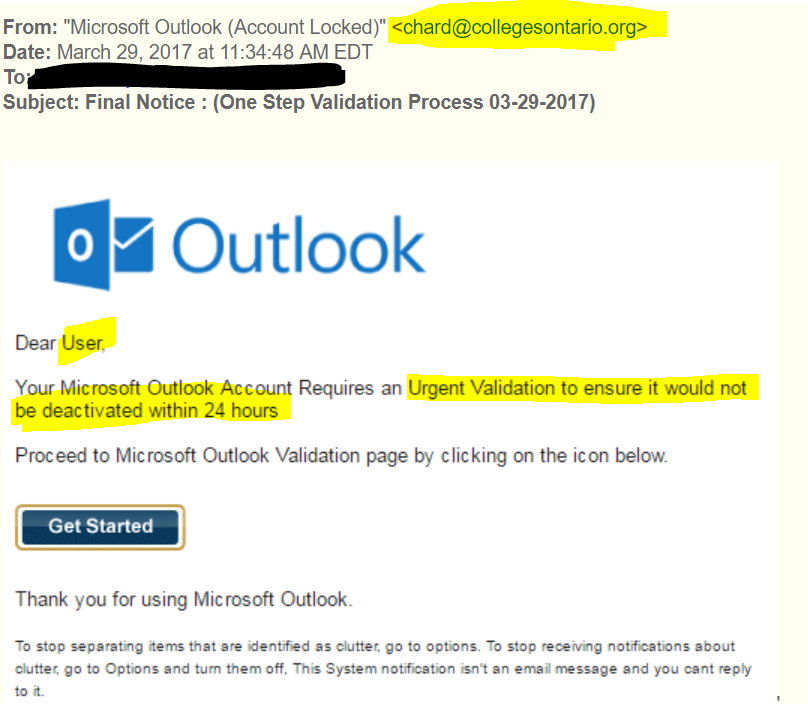
SevenC would like to take this opportunity to remind users to be vigilant of the email messages that land in their inbox — especially those messages that ask you to divulge personal information.
These messages are examples of phishing attacks. Phishing attacks use spoofed emails and fake web sites to fool the recipients into divulging personal information such as usernames and passwords, credit card numbers, ID numbers, etc.
If you happened to get ‘hooked’ by one of these messages, you should change your password immediately and contact the SevenC Service Desk.
When in doubt forward the suspicious email to SevenC Support for a second opinion. Phishing attacks come in many forms and most often try to spoof services that you’re likely familiar with to give you a false sense of security. These can include:
- Bank notices
- Email password changes
- Security notices
- Shipping notices
- Software updates
- Order confirmations
- …and more!
Be suspicious of any email that:
- Asks you to divulge personal information
- Isn’t personalized (uses generic greetings such as ‘Dear Customer’ or your email address)
- Asks you to open or download an attachment
- Has links that don’t match what is displayed (when you hover over the link with your mouse)
- Has a false sense of urgency
- Is poorly written
First and foremost you should know that SevenC will NEVER send you an email asking you to divulge account details, or with links asking you to log into your account.
The easiest way to protect yourself is to never respond to anyone who asks for personal information by email, even it is from a seemingly legitimate source.


